Books by Cristiano Tonéis
dois capitulos emcolaboraçãocom meus alunosde I.C.mostrabdoas potencialidades da robotica escolar.
Neste trabalho apresento um panorama do estudo envolvendo games e processos de gamificação pensan... more Neste trabalho apresento um panorama do estudo envolvendo games e processos de gamificação pensando na sala de aula.
VCOLBEDUCA, 2020
This paper presents a proposal for gamefication of mathematical activities or educational minigam... more This paper presents a proposal for gamefication of mathematical activities or educational minigames with the free game engine construct 2. The game as a space for dialogue has in its production and planning process a multidisciplinary way that articulates many kind of knowledge. With researcher such as Prensky (2004); Mcgonigal (2012); Tonéis (2017) we elaborate and apply with students of the degree in mathematics - UNESP Guaratinguetá - script involving the concepts of the game design. Thus, we produce level prototypes and observe their potentialities in the classroom in the production of minigames or gamified activities. Hence, "being-with” a digital technologies indicates a constant reflexive action.
Keywords: Mathematical education. game design. Construct 2. gamefication.
e-book Estudos sobre o desenvolvimento de games , 2019
A produção de jogos eletrônicos se apresenta como um evento global e um processo irreversível enq... more A produção de jogos eletrônicos se apresenta como um evento global e um processo irreversível enquanto manifestação cultural. Neste sentido os espaços dedicados à formação, nos quais compreendemos a educação, podem e muitas vezes se utilizam do universo digital dos games como forma de gamificação do currículo escolar. Assim, um tipo de jogo emerge em meio à diversidade e natureza destes espaços enquanto desenvolvedores e professores precisam unir forças no sentido de promover jogos epistemológicos – epistemological games – nos quais aspectos da pesquisa cientifica e da diversão constituem o game design e level design – puzzles. Neste capítulo apresentamos estas estruturas fundamentais e apontamos para a produção e expansão de um mercado emergente no Brasil e no mundo, os games com propósitos educacionais.
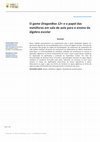
RBECT - Revista Brasileira de Ensino de Ciências e Tecnologia, 2019
Neste trabalho apresentamos um mapeamento para o game DragonBox Algebra 12+ apontando algumas de ... more Neste trabalho apresentamos um mapeamento para o game DragonBox Algebra 12+ apontando algumas de suas possibilidades para o ensino da álgebra escolar. Participaram da pesquisa dois grupos da região de Guaratinguetá: (A) professores de matemática da rede pública estadual; (B) alunos da Licenciatura em Matemática da UNESP. Analisamos quais tipos e a intencionalidade de metáforas utilizadas por professores ao ensinar as operações algébricas no Ensino Fundamental (2º ciclo), e qual o papel dessas metáforas na negociação de significados e produção da matemática escolar. Por meio da fenomenologia de Merleau-Ponty articulada a aprendizagem baseada em jogos digitais
mediante as metáforas fornecidas pelo game indicamos um processo no qual nossa vivência se traduz em significações decorrentes de nossas experiências e ações.Observamos no jogar o jogo uma forma de introduzir as regras algébricas na forma de regras do jogo contribuindo para formação escolar e estruturas das aulas.
Ser professor com tecnologias, 2018
Livro com atividades de geometria, do caderno do aluno do Estado de São paulo, e outras sugestõe... more Livro com atividades de geometria, do caderno do aluno do Estado de São paulo, e outras sugestões utilizando o software livre GeoGebra.
Level design, jogabilidade e narrativa para games, 2018
O panorama atual dos jogos digitais nos confronta e nos impulsionam para novos paradigmas de leve... more O panorama atual dos jogos digitais nos confronta e nos impulsionam para novos paradigmas de level design. Ao compreendermos os modos pelos quais um level design pode ser constituído encontramos articulações entre puzzles, tasks e quests e no sentido de ampliarmos e criarmos novos desafios torna-se necessário desenharmos, a partir das mecânicas em um game, uma maneira de apresentar esses elementos de forma a contribuir para o processo narrativo contextualizando desafios e narrativa ao passo que evoluímos no jogar um jogo. Nesse sentido este capítulo oferece exemplos e maneiras de realizar e documentar essas articulações para contribuir com o processo criativo do game design.
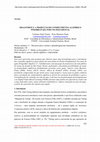
Este texto apresenta uma pesquisa que objetiva produzir uma metodologia para a introdução dos con... more Este texto apresenta uma pesquisa que objetiva produzir uma metodologia para a introdução dos conteúdos algébricos para alunos dos anos finais do Ensino Fundamental. Por meio do game DragonBox Algebra 12+ trabalharemos com grupo de professores da rede pública de ensino do Estado de São Paulo, Brasil, analisando e discutindo possibilidades de tratar as propriedades algébricas fundamentais presentes nesse game. Autores como Merleau-Ponty (2002; 2006); Toneis (2015); Saetre (2013); Garris et al.(2002), Prensky (2006;2007) nos permitirão compreender de que modo nosso corpo-próprio e nossa ação no game colabora para a produção de conhecimentos algébricos via resolução de problemas e para a sistematização do conteúdo em sala de aula. Com base na fenomenologia merleaupontyana no Digital Game-Based Learning (DGBL) faremos uma análise da experiência vivida com o jogo indicando como e quais elementos matemáticos e lógicos emergem na ação de jogar, a partir da expressão dos sujeitos que jogam.
Resumo: Esta pesquisa tem como objetivo o mapeamento do game DragonBox Elements e suas potenciali... more Resumo: Esta pesquisa tem como objetivo o mapeamento do game DragonBox Elements e suas potencialidades para a produção de conhecimentos geométricos. Por meio da aprendizagem baseada em jogos digitais (DGBL) e da fenomenologia de Merleau-Ponty indicamos um processo, mediante as metáforas criados pelo game, no qual nossa vivência se traduz em significações decorrentes de nossas experiências e ações. Desse modo indicamos um caminho para o " jogar " também em espaços escolares e o game como uma oportunidade para diálogos e negociações de significados matemáticos. Palavras Chaves: Games. Geometria Plana. Produção de conhecimentos.
Os games na sala de aula: Games na educação ou a gamificação da educação, 2017
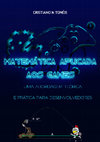
É um livro que atende interessados em games; em comportamentos autômatos – mecatrônica e game art... more É um livro que atende interessados em games; em comportamentos autômatos – mecatrônica e game artificial intelligence – e computação aplicada, oferecendo bases consistentes para esses cursos. Essa obra apresenta de modo contextualizado as possibilidades que emergem para a produção de mecânicas e level design em jogos digitais por meio da Matemática. É muito comum encontrarmos desenvolvedores de jogos digitais que narram dificuldades com a programação dos games, muitas dessas dificuldades estão no conhecimento de recursos matemáticos aplicados aos jogos digitais. Os cursos que formam game designers são razoavelmente novos no Brasil e ainda estão formando o mercado nacional. Se desejarmos um mercado de produção de games inovadores e originais precisamos superar os obstáculos da programação e da matemática nos games. Com isso, essa obra vem ao encontro daqueles que desejam ampliar ou otimizar suas habilidades na produção de jogos digitais e Inteligência Artificial com modelos matemáticos e computacionais provenientes da Geometria Analítica, Álgebra Linear e Estatística e Probabilidades. Essa obra contém muitos exemplos práticos, exercícios e desafios, além disso, apresenta em seus anexos exemplos de códigos computacionais para auxiliar na compreensão dos conceitos e problemas apresentados.
https://www.clubedeautores.com.br/book/211786--Matematica_Aplicada_aos_Games?topic=cienciasexatas#.V55Bp_krLIU
This chapter discusses cognitive abilities that can be developed by means of the metaverse. We ar... more This chapter discusses cognitive abilities that can be developed by means of the metaverse. We are concerned with developing virtual environments capable of providing, in a world full of challenges, more than adventures and excitement meant to push the narrative forward. In the search for recovering classical concepts and integrating them into the metaverse we also seek their episteme so that experience construction can be contemplated by means of lateral thinking, that is “thinking about thinking” in a way similar to the Greek concept of mathema. Can we develop creative thinking? What is the role of games? Which characteristics of games can open up paths to creative thinking? The classical culture and the classical puzzles can give us an opportunity to answer these questions.
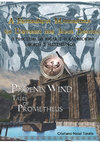
The purpose of the present research was to develop a game, and then to identify and organize the ... more The purpose of the present research was to develop a game, and then to identify and organize the actions of the players while playing this game and solving puzzles. More specifically,
we intended to investigate which mathematical experiences would emerge from the action of playing this game, by means of the immersion and exploration within the realm of this game. We developed and implemented the game in its Alpha version – Wind Phoenix: Tales of Prometheus –, which offered, from the perspective of our hypothesis, to its protagonist the
opportunity to develop and to produce mathematical nowledge through logical and mathematical reasoning, by solving the puzzles and exploring the paces of the game. We have articulated these aspects with our survey issues: [1] What mathematical objects emerge from the actions of the protagonists during their experience in the game? [2] What aspects influence the elaboration and modification of the game and the puzzles? [3] What didactic and methodological applications arise from this kind of game?
The methodology adopted was the Design Based Research (DBR) model, since it presents an interactive and interventionist approach, which allowed us the consideration of the theories we presented through the production and gameplay of this game.
The Embodied Cognition – presented as our theoretical principle – deals with concepts of the Merleau-Ponty’s Phenomenology and reaches the work of Barsalou (2003; 2008), Fauconnier (2000), among others, from which we understand that every action is contextualized. Therefore, in our case, this experience within a game contributes for the production of knowledge upon the logical and mathematical reasoning.
Indeed, the challenges the players accepted and faced – in a contextualized way – in an adventure in this digital game provided engagements with the Mathematics connected with the real life. The overcoming of the process of trial and error and its substitution for processes of problem solving, through the creation of conjectures, data collection and tests and analysis of the effects showed an elaborate capacity of strategic thinking. We also observed a meaningful increase in the capacity of concentration in the actions of the participants, given their attention and observation of the details of the game, such as sceneries, map of the game and its operation or effects/feedbacks. For the next versions, Wind Phoenix will
be implemented using the game engine Unreal 4, adapting its level design, in order to expand the mechanisms proposed in the parameterizations of the puzzles.
The premise of freedom or invitation to play has always been present in our proposal. We have observed that the apparently uncommitted playing presented itself in a pleasant and motivating way. Thus, the use of digital games in learning environments is related to a pedagogical proposal, which must be implied in the choice or production of a game.
We concluded that the players assumed a role in the game and constituted a process of enunciation of logical problems – puzzles. Hence, the development of epistemological games in
3D with commercial quality showed a possibility for us to unveil new paradigms in the production of knowledge and in the construction of mathematical knowledge upon the logical and mathematical reasoning that surpasses our personal experiences.
Na busca de uma matemática anterior as formalizações, apresentamos uma pesquisa na qual enfocamos... more Na busca de uma matemática anterior as formalizações, apresentamos uma pesquisa na qual enfocamos os aspectos ontológicos da lógica matemática existente e perceptíveis nos jogos digitais, particularmente no game paradigmático Myst. Demonstramos que por meio da resolução dos puzzles do jogo estamos desenvolvendo as estruturas cognitivas necessárias para a construção do conhecimento.
Papers by Cristiano Tonéis
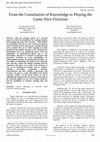
International Journal of Innovative Science and Research Technology, 2023
This text presents aspects of a research project in which the possibilities for teaching fraction... more This text presents aspects of a research project in which the possibilities for teaching fractions when playing the game Slice Fractions-Math Makers are questioned. The aim is to get to know the game in order to identify what it opens up for teaching fractions and to analyze the way in which meanings are made possible for the students who play it. The constitution of knowledge in the act of "playing the game" favors the signification of mathematical objects due to our presentiality, situated as an element of playing in this movement, involving an active methodology for understanding fractions. By playing Slice Fractions, we can outline a methodology for games in the classroom and, with this, explore the updates resulting from the experience with games. As a result of the research, we can see the meanings of fractions such as: number; ordering; part-whole; proportion; quotient; representations and ideas relating to operations with fractions. We point to a path with Digital Game Based Learning-DGBL-in the school context, as well as explaining the demands that the presence of the game in the classroom implies for the way of being a professor and the possibilities of activities resulting from this process.
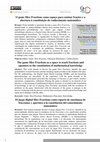
Educação Matemática Debate, 2023
O game Slice Fractions como espaço para ensinar frações e a abertura à constituição de conhecimen... more O game Slice Fractions como espaço para ensinar frações e a abertura à constituição de conhecimento matemático Resumo: Neste trabalho se pretende discutir o game Slice Fractions, identificando as potencialidades abertas para ensinar frações e as significações possibilitadas aos alunos que jogam. Como metodologia articula-se o Digital Game Based Learning (DGBL) e a fenomenologia husserliana. Na vivência trazida à discussão, os participantes apresentaram os significados de frações como partetodo; número; operações; comparações; ordenação. Entende-se que o jogar situa-se como um elemento de nossa presencialidade, então a significação dos objetos matemáticos, frações, se desdobra como constituição de conhecimentos no ato de jogar Slice Fractions em articulação com a resolução de problemas. Entrelaçados aos elementos do game, vê-se que emerge no processo de jogar a atividade da pessoa que constitui conhecimento matemático e se abre ao diálogo com o outro.
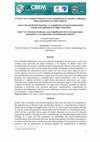
IX CIBEM - Comunicacao oral , 2022
In this work we delimit as our research question: How does the game Cuit contribute to the appreh... more In this work we delimit as our research question: How does the game Cuit contribute to the apprehension of Boolean logic and Boolean algebra as a resignification of logical mathematical concepts and applications? For this, we seek to play and resignify through an activity script articulating the intentionality and functionality of edutainment games, with Cuit like a possible serious game for higher education, in our case 62 computer
engineering students. Through an active methodology, we articulate digital game based learning as a space for the production of knowledge and logical-mathematical resignifications such as Boolean functions and Boolean algebra. From these assumptions, we observed that the game contributed to the understanding of the foundations of logical
operators and an introduction to Boolean algebra for simplification of Boolean expressions; production of boolean functions and verify their possible applications (meanings); understanding of procedural algorithms as a basis for coding and relationships between symbolic logic and mathematic – logical mathematic.
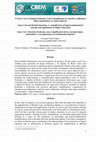
IX CIBEM , 2022
Neste trabalho delimitamos como nossa questão de pesquisa: De que modo o game Cuit colabora para ... more Neste trabalho delimitamos como nossa questão de pesquisa: De que modo o game Cuit colabora para apreensão da lógica booleana e da álgebra de Boole como uma ressignificação de conceitos e aplicações lógico-matemáticas? Para isso buscamos o jogar e o ressignificar por meio de um roteiro de atividade articulando a intencionalidade e a funcionalidade dos edutainment games sendo Cuit um serious game aplicável para o ensino superior, em nosso caso 62 estudantes de engenharia da computação. Por meio de uma metodologia ativa articulamos o digital game based learning como um espaço para produção de conhecimentos e ressignificações lógico-matemáticas como as funções booleanas e a álgebra de Boole. A partir destes pressupostos observamos que o jogo contribuiu para compreensão dos fundamentos dos operadores lógicos e uma introdução a álgebra de Boole nas simplificações de expressões booleanas; produção de funções booleanas e verificação suas possíveis aplicações (significações); compreensão de algoritmos procedimentais como base para codificação e relações entre lógica simbólica e a matemática – lógica-matemática.
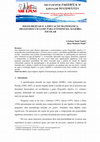
Resumo: Este minicurso tem como objetivo apresentar e contextualizar o game DragonBox Algebra 12+... more Resumo: Este minicurso tem como objetivo apresentar e contextualizar o game DragonBox Algebra 12+ propondo uma metodologia para a vivência com os games e atividades gamificadas no ambiente escolar. Assumindo uma postura fenomenológica convidaremos os participantes do minicurso para " entrarem no jogo da álgebra " e, vivenciando, apreender suas regras, identificar, organizar e compreender as metáforas do game como fonte para significações algébricas. Com esta proposta esperamos possibilitar um olhar renovado para a prática de ensino da álgebra valorizando aspectos da aprendizagem e da produção de sentido pelo aluno. Espera-se que trazendo para o debate o mundo de nossos jogadores, em qualquer que seja seu nível, o mundo no qual a tecnologia digital e os games também o constituem possa fazer sentido ao contexto escolar. Palavras-chave: jogos digitais; álgebra; fenomenologia, produção do conhecimento.
Nosso projeto de Iniciação Científica tem como objetivo descrever os modelos matemático-computaci... more Nosso projeto de Iniciação Científica tem como objetivo descrever os modelos matemático-computacionais que emergem na produção de um micromouse. Ao compreender essas relações de estabilidade e controle para um micromouse expressamos uma maneira de desenhar contextos básicos para o desenvolvimento de robôs móveis e autômatos.










Uploads
Books by Cristiano Tonéis
Keywords: Mathematical education. game design. Construct 2. gamefication.
mediante as metáforas fornecidas pelo game indicamos um processo no qual nossa vivência se traduz em significações decorrentes de nossas experiências e ações.Observamos no jogar o jogo uma forma de introduzir as regras algébricas na forma de regras do jogo contribuindo para formação escolar e estruturas das aulas.
http://www.bookess.com/read/29155-os-games-na-sala-de-aula-games-na-educacao-ou-a-gamificacao-da-educacao/
https://www.amazon.com.br/Os-games-sala-aula-gamifica%C3%A7%C3%A3o-ebook/dp/B0787MV3SL
https://www.clubedeautores.com.br/book/211786--Matematica_Aplicada_aos_Games?topic=cienciasexatas#.V55Bp_krLIU
we intended to investigate which mathematical experiences would emerge from the action of playing this game, by means of the immersion and exploration within the realm of this game. We developed and implemented the game in its Alpha version – Wind Phoenix: Tales of Prometheus –, which offered, from the perspective of our hypothesis, to its protagonist the
opportunity to develop and to produce mathematical nowledge through logical and mathematical reasoning, by solving the puzzles and exploring the paces of the game. We have articulated these aspects with our survey issues: [1] What mathematical objects emerge from the actions of the protagonists during their experience in the game? [2] What aspects influence the elaboration and modification of the game and the puzzles? [3] What didactic and methodological applications arise from this kind of game?
The methodology adopted was the Design Based Research (DBR) model, since it presents an interactive and interventionist approach, which allowed us the consideration of the theories we presented through the production and gameplay of this game.
The Embodied Cognition – presented as our theoretical principle – deals with concepts of the Merleau-Ponty’s Phenomenology and reaches the work of Barsalou (2003; 2008), Fauconnier (2000), among others, from which we understand that every action is contextualized. Therefore, in our case, this experience within a game contributes for the production of knowledge upon the logical and mathematical reasoning.
Indeed, the challenges the players accepted and faced – in a contextualized way – in an adventure in this digital game provided engagements with the Mathematics connected with the real life. The overcoming of the process of trial and error and its substitution for processes of problem solving, through the creation of conjectures, data collection and tests and analysis of the effects showed an elaborate capacity of strategic thinking. We also observed a meaningful increase in the capacity of concentration in the actions of the participants, given their attention and observation of the details of the game, such as sceneries, map of the game and its operation or effects/feedbacks. For the next versions, Wind Phoenix will
be implemented using the game engine Unreal 4, adapting its level design, in order to expand the mechanisms proposed in the parameterizations of the puzzles.
The premise of freedom or invitation to play has always been present in our proposal. We have observed that the apparently uncommitted playing presented itself in a pleasant and motivating way. Thus, the use of digital games in learning environments is related to a pedagogical proposal, which must be implied in the choice or production of a game.
We concluded that the players assumed a role in the game and constituted a process of enunciation of logical problems – puzzles. Hence, the development of epistemological games in
3D with commercial quality showed a possibility for us to unveil new paradigms in the production of knowledge and in the construction of mathematical knowledge upon the logical and mathematical reasoning that surpasses our personal experiences.
Papers by Cristiano Tonéis
engineering students. Through an active methodology, we articulate digital game based learning as a space for the production of knowledge and logical-mathematical resignifications such as Boolean functions and Boolean algebra. From these assumptions, we observed that the game contributed to the understanding of the foundations of logical
operators and an introduction to Boolean algebra for simplification of Boolean expressions; production of boolean functions and verify their possible applications (meanings); understanding of procedural algorithms as a basis for coding and relationships between symbolic logic and mathematic – logical mathematic.
Keywords: Mathematical education. game design. Construct 2. gamefication.
mediante as metáforas fornecidas pelo game indicamos um processo no qual nossa vivência se traduz em significações decorrentes de nossas experiências e ações.Observamos no jogar o jogo uma forma de introduzir as regras algébricas na forma de regras do jogo contribuindo para formação escolar e estruturas das aulas.
http://www.bookess.com/read/29155-os-games-na-sala-de-aula-games-na-educacao-ou-a-gamificacao-da-educacao/
https://www.amazon.com.br/Os-games-sala-aula-gamifica%C3%A7%C3%A3o-ebook/dp/B0787MV3SL
https://www.clubedeautores.com.br/book/211786--Matematica_Aplicada_aos_Games?topic=cienciasexatas#.V55Bp_krLIU
we intended to investigate which mathematical experiences would emerge from the action of playing this game, by means of the immersion and exploration within the realm of this game. We developed and implemented the game in its Alpha version – Wind Phoenix: Tales of Prometheus –, which offered, from the perspective of our hypothesis, to its protagonist the
opportunity to develop and to produce mathematical nowledge through logical and mathematical reasoning, by solving the puzzles and exploring the paces of the game. We have articulated these aspects with our survey issues: [1] What mathematical objects emerge from the actions of the protagonists during their experience in the game? [2] What aspects influence the elaboration and modification of the game and the puzzles? [3] What didactic and methodological applications arise from this kind of game?
The methodology adopted was the Design Based Research (DBR) model, since it presents an interactive and interventionist approach, which allowed us the consideration of the theories we presented through the production and gameplay of this game.
The Embodied Cognition – presented as our theoretical principle – deals with concepts of the Merleau-Ponty’s Phenomenology and reaches the work of Barsalou (2003; 2008), Fauconnier (2000), among others, from which we understand that every action is contextualized. Therefore, in our case, this experience within a game contributes for the production of knowledge upon the logical and mathematical reasoning.
Indeed, the challenges the players accepted and faced – in a contextualized way – in an adventure in this digital game provided engagements with the Mathematics connected with the real life. The overcoming of the process of trial and error and its substitution for processes of problem solving, through the creation of conjectures, data collection and tests and analysis of the effects showed an elaborate capacity of strategic thinking. We also observed a meaningful increase in the capacity of concentration in the actions of the participants, given their attention and observation of the details of the game, such as sceneries, map of the game and its operation or effects/feedbacks. For the next versions, Wind Phoenix will
be implemented using the game engine Unreal 4, adapting its level design, in order to expand the mechanisms proposed in the parameterizations of the puzzles.
The premise of freedom or invitation to play has always been present in our proposal. We have observed that the apparently uncommitted playing presented itself in a pleasant and motivating way. Thus, the use of digital games in learning environments is related to a pedagogical proposal, which must be implied in the choice or production of a game.
We concluded that the players assumed a role in the game and constituted a process of enunciation of logical problems – puzzles. Hence, the development of epistemological games in
3D with commercial quality showed a possibility for us to unveil new paradigms in the production of knowledge and in the construction of mathematical knowledge upon the logical and mathematical reasoning that surpasses our personal experiences.
engineering students. Through an active methodology, we articulate digital game based learning as a space for the production of knowledge and logical-mathematical resignifications such as Boolean functions and Boolean algebra. From these assumptions, we observed that the game contributed to the understanding of the foundations of logical
operators and an introduction to Boolean algebra for simplification of Boolean expressions; production of boolean functions and verify their possible applications (meanings); understanding of procedural algorithms as a basis for coding and relationships between symbolic logic and mathematic – logical mathematic.
Keywords
Puzzle; Logical mathematical reasoning; Epistemological games; Knowledge
same way of our hypothesis, the game offers to its protagonist opportunities to develop and to produce mathematical knowledge through logical and mathematical reasoning by solving puzzles and exploring spaces. The methodology adopted was the Design Based Research, since it presents an interactive and interventionist approach, which allowed us the consideration of the theories we presented through the production and gameplay of this game. Through the Embodied Cognition, that deals with concepts of the Merleau-Ponty's Phenomenology and reaches the work of Barsalou [2003; 2008], Fauconnier [2000], among others, we understand that every action is contextualized and, in our case, it is experienced in a game by the logical and mathematical reasoning. Indeed, during the overcoming of the 'trial and error' process, the protagonists of this digital adventure developed processes of problem solving, through the creation of conjectures, data collection, tests and analysis, indicating the production a strategic thinking. We concluded that, assuming a role in the game, the players established an enunciation process of logical problems - puzzles. Therefore, the development of epistemological games in 3D has revealed itself as a possibility for us to start new paradigms in the production of mathematical knowledge upon the logical and mathematical reasoning that surpasses our personal experiences.
Palavras-chave: game; puzzles; raciocínio lógico e matemático.
Palavras-chave: Puzzles. Game design. Level design. Produção de conhecimentos.
Abstract: This research seeks to relate the importance of using puzzles in digital games for the purpose of production of knowledge. The puzzles provide a type of challenge or enigma which player demand their creativity and interconnections of knowledge, action and production strategies. The logical structure of puzzles always provides a logical or mathematical challenge, but not limited to these sciences. Through authors as Gardner, Loyd, Dudeney, Stwart, Polya, among others, it demonstrates how the use of classic puzzles in adaptations to new narratives in games can contribute to the performance of game design and development of appropriate level design for each type of game. As application example we present an adaptation made for the game Wind Phoenix, our prototype in development for a PhD in mathematics education in our thesis that supports the production and development of logical and mathematical reasoning in digital games.
digital “De Amarna a Tebas” denota nossa preocupação em alcançarmos um espaço educativo divertido, no qual aprender é a maior aventura.
que emergem como cinemática de robôs móveis na produção de um micromouse capaz de mapear e resolver labirintos. Para robótica móvel o processo de mapeamento e localização simultâneos – SLAM – denota, entre os processos atuais, como um dos processos robóticos de maior complexidade e aplicabilidade.
Neste trabalho apresentamos a produção de um robô – MagicBot – capaz de resolver e/ou embaralhar um cubo de Rubik 3x3x3 e mapear os modelos lógico-matemáticos que emergem neste processo. Por meio de autores como Polya (1995); Papert (1980) até Wing (2006; 2008), entre outros, apresentamos um caminho para o estudo e problematização de soluções no processo de resolução de problema e desenvolvimento do pensamento computacional como uma habilidade humana empregada na solução e generalizações de soluções, como proposta deste as pesquisas de Saymour Papert. Nossa proposta está centrada nas metodologias ativas hands on com Problem Based Learning (PBL) articuladas. Em nossos resultados preliminares delimitamos o método de Kociemba que será aplicado ao robô na resolução do cubo de Rubik bem como as possibilidades de produção de conhecimentos geométricos como planificações; áreas superficiais e volumes determinados pelo estudo da forma do cubo, oferecendo um caminho para apresentação destes conceitos para ensino da matemática e no que tange a computação os processos para algoritmos procedimentais.
http://www.sbgames.org/sbgames2015/anaispdf/cultura-full/146818.pdf
Palavras-chave: micromouse; modelos matemáticos; produção significados.
Abstract: This project aims to plan and build a micromouse or mobile robot capable of mapping and solving mazes as well as a study and description of the mathematical-computational models involved in its kinematics. The simultaneous mapping and localization process-SLAM-is revealed as one of the current robotic processes of greater complexity and applicability in the meanings and new relationships with our experiential world. With authors like Merleau-Ponty (2006); Bicudo and Rosa (2013); Veiga et al. (2011); Craig (2006) and Benavides et al. (2018) among others, we propose the Flood Fill algorithm in the labyrinth solution model in the development of the micromouse. The applications of this process extend to any study of automatic robots, understood as extensions of our own body in our experiential world and capable of locating and mapping spaces ranging from small robots for domestic cleaning to robots useful in hospitals for sterilization with ultraviolet light up to automaton automobiles. We present a study of the mathematical and computational characteristics, as well as structural, for the kinematics of this type of robot aiming at its construction and this study denotes a resignification of the applied mathematical models and in the way of “being with digital technologies and robotics”.
Keywords: micromouse; mathematical models; production meanings.
Palavras-chave: jogos digitais; álgebra; fenomenologia, produção do conhecimento.